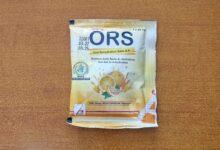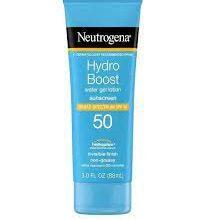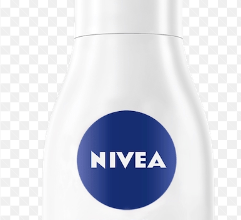
10 Factors Affecting COVID-19 Vaccine Acceptance In Nigeria
Factors Affecting COVID-19 Vaccine Acceptance In Nigeria – COVID-19 vaccine acceptance in Nigeria has been a topic of much discussion and debate. The Nigerian government has been working to secure and distribute vaccines to its population, with priority given to health workers and other high-risk groups. However, there has been some hesitancy among the general population to take the vaccine, due to concerns about its safety and effectiveness. Additionally, there have been reports of misinformation and false rumors circulating about the vaccines. Despite these challenges, efforts are ongoing to educate the public and increase the acceptance of vaccines.Factors Affecting COVID-19 Vaccine Acceptance In Nigeria
What is COVID-19?
COVID-19 is a highly contagious respiratory illness caused by the SARS-CoV-2 virus. It first emerged in Wuhan, China in December 2019 and has since spread to become a worldwide pandemic. Symptoms include fever, cough, shortness of breath, and loss of taste or smell, with some individuals showing no symptoms at all. The virus primarily spreads through respiratory droplets when an infected person talks, coughs, or sneezes, and can also be contracted by touching a surface or object contaminated with the virus and then touching the face. Preventative measures include wearing masks, washing hands frequently, and practicing social distancing.
👉 Relocate to Canada Today!
Live, Study and Work in Canada. No Payment is Required! Hurry Now click here to Apply >> Immigrate to CanadaRead Also: 10 Factors That Influence Decision Making
When was the First Case of COVID-19 in Nigeria
The first confirmed case of COVID-19 in Nigeria was reported on February 27, 2020.
What is COVID-19 Vaccine Acceptance?
COVID-19 vaccine acceptance refers to the willingness of individuals to receive a vaccine developed to protect against the novel coronavirus (SARS-CoV-2) that causes COVID-19. Acceptance of the vaccine can be influenced by a variety of factors, including concerns about safety and efficacy, mistrust of the healthcare system, and misinformation about the vaccine. Studies have shown that vaccine acceptance varies among different populations and that addressing these concerns through education and community engagement can increase acceptance.
Types of Covid-19 Vaccine Acceptance in Nigeria
There are several types of COVID-19 vaccine acceptance:Romantic Love Messages
1 Eager Acceptance: This refers to individuals who are willing and eager to receive the vaccine as soon as it becomes available to them. They have a high level of trust in the vaccine and its effectiveness.
- Hesitant Acceptance: This refers to individuals who may be willing to receive the vaccine, but have some concerns or reservations about it. They may need more information or reassurance before making a decision.
- Refusal: This refers to individuals who do not want to receive the vaccine and may have strong beliefs or mistrust in the vaccine and its effectiveness.
- Wait and See: This refers to individuals who want to wait and see how the vaccine works for others before deciding whether or not to receive it themselves.
- Financial Issues: This refers to individuals who are not able to get the vaccine due to financial constraints.
- Accessibility Issues: This refers to individuals who are not able to get the vaccine due to lack of access, for example living in a rural area or lack of transportation.
Read Also: 10 Factors Affecting Crop Production In Nigeria
Advantages of COVID-19 Vaccine Acceptance in Nigeria
Reduced risk of severe illness and death from COVID-19: Vaccination is one of the most effective ways to prevent severe illness and death from COVID-19.Romantic Love Messages
1. Protection of Vulnerable Populations:
Vaccines can help protect those who are at higher risk of severe illness and death from COVID-19, such as older adults and people with underlying health conditions.
👉 Relocate to Canada Today!
Live, Study and Work in Canada. No Payment is Required! Hurry Now click here to Apply >> Immigrate to Canada2. Reduced Spread of COVID-19:
The more people who are vaccinated, the harder it is for the virus to spread, which helps to slow the spread of COVID-19 in the community.
3 Economic Recovery:
Widespread vaccination can help to restore economic activity by reducing the number of people who are ill or need to be quarantined due to exposure to the virus.
4. Protecting Healthcare Workers:
Vaccinating healthcare workers will help protect them from getting sick and dying from COVID-19, which will help to ensure that they can continue to provide essential care to patients. NYSC Portal
Read Also: 10 Factors Affecting Employment in Nigeria
5. Herd Immunity:
Widespread vaccination can lead to herd immunity, where a large percentage of a population is immune to a disease, making it difficult for the disease to spread. This can help to protect people who are unable to receive vaccines, such as those with certain medical conditions.
COVID-19 Vaccine Acceptance and the Nigerian Society
The acceptance of COVID-19 vaccines in Nigeria has been mixed. Initially, there were concerns about the safety and efficacy of the vaccines, as well as mistrust of government and healthcare officials. However, as more information about the vaccines became available and as the pandemic continued to ravage the country, public sentiment began to shift.
In early 2021, the Nigerian government launched a nationwide vaccination campaign, utilizing vaccines from Pfizer-BioNTech, AstraZeneca, and Johnson & Johnson. Despite some initial hesitancy, the campaign was successful in vaccinating a large portion of the population. However, some Nigerians remain skeptical of the vaccines, with some citing religious or cultural reasons for their refusal.Good Morning Love Message
It’s worth noting that Nigeria has a history of vaccine hesitancy, with low vaccination rates for other infectious diseases, and that mistrust of government and healthcare officials has been a factor contributing to vaccine hesitancy. But with increasing awareness and education campaigns, the acceptance of COVID-19 vaccines in Nigeria is expected to continue to grow.
Read Also: 10 Factors Affecting Vegetable Production In Nigeria
Factors Affecting COVID-19 Vaccine Acceptance in Nigeria
Several factors have affected COVID-19 vaccine acceptance in Nigeria, including:
1. Lack of Trust in Government and Healthcare Institutions:
Many Nigerians have reported distrust in the government and healthcare institutions, which has made it difficult for them to trust and accept the COVID-19 vaccines.
2. Misinformation and Misinformation:
There has been a lot of misinformation and disinformation about the COVID-19 vaccines circulating online and in communities, which has contributed to vaccine hesitancy.
3. Religious and Cultural Beliefs:
Some religious and cultural beliefs in Nigeria are against vaccination, which has also contributed to vaccine hesitancy.
4. Financial Constraints:
Many Nigerians cannot afford the cost of the vaccine and do not have access to it.JAMB Portal
5. Limited Accessibility:
Limited accessibility to the
vaccine and lack of information on where and how to get vaccinated have also been a barrier to vaccine acceptance in Nigeria.
6. Limited Awareness and Education:
Many Nigerians lack knowledge and understanding about the COVID-19 vaccines and how they work, which has contributed to vaccine hesitancy.
7. Fear of Side Effects:
Some Nigerians have reported fear of the potential side effects of the COVID-19 vaccines, which has made them hesitant to get vaccinated.
8. Prioritization of Other Health Issues:
With Nigeria facing a range of health issues, some people may prioritize other health needs over getting vaccinated for COVID-19.
Read Also: 10 Factors Affecting Audit Quality in Nigeria
9. Lack of Government Support:
Some Nigerians have reported that the government has not provided enough support for the distribution and administration of the COVID-19 vaccines.
10. Limited Supply:
The limited supply of the vaccine also affects vaccine acceptance in Nigeria as people may not have access to it, which in turn results in hesitancy.
Conclusion
In Nigeria, acceptance of the COVID-19 vaccine has been mixed. While many people are eager to receive the vaccine, others have expressed concerns about its safety and effectiveness. The Nigerian government has been working to educate the public about the benefits of vaccination and to dispel misinformation about the vaccine. Overall, continued efforts need to be made to increase vaccine acceptance in Nigeria to help control the spread of the virus and protect public health.
Check JAMB RESULT
Check and Confirm: How much is Dollar to Naira








